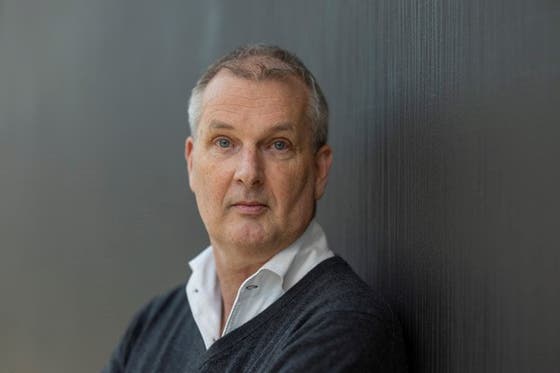Precision medicine to treat effectively

Lees artikel in het Nederlands >
Marcel Kool, professor of Childhood brain tumors at UMC Utrecht, delivered his oration on Wednesday 24 January, titled "Pediatric Brain Tumors - WHO cares!?" on the different types of brain tumors in children, developments in precision medicine and the search for effective treatments.
Every year, about 180 children are diagnosed with a brain tumor. About half of these children have a tumor that is difficult to treat. For them, cure is not possible. Marcel Kool, research group leader at the Princess Máxima Centre: 'There are many different types of brain tumors in children. The variation is great, and the numbers are small. We want to find effective treatments for all these types of tumors. Treating these tumors is an immense challenge because what works for one tumor is not effective for another.'
In his research in recent years, Marcel Kool has gained a more complete understanding of the different types of brain tumors that exist in children. 'This has led to a much better classification (classification) based on molecular and genetic differences. And to a division of patients into subgroups (stratification). Based on how well the tumor responds to a particular treatment, we can apply precision medicine. In this, we have made progress for most types of brain tumors in children.'
Marcel Kool started his career at Wageningen University and Research, where he obtained his PhD on viruses in insects. The medical field attracted him more, so he made the move to the Netherlands Cancer Institute. Kool first turned his attention to childhood cancer at the UMC Amsterdam location AMC, where, as a research group leader, he focused on genetic changes in brain tumors, among other things. In 2011, he moved to Heidelberg, Germany, to do research on brain tumors in children at the German Cancer Research Center DKFZ and later at the Hopp-KiTZ pediatric tumor centre. Since 2019, he has divided his time between the Hopp-KiTZ and the Princess Máxima Centre. At the Máxima, he leads a second research group with the same focus. Kool also plays an important role in the twinning programme between the two institutes.
Brain tumors account for about a quarter of all cases in children, while in adults it is only 1-2% of all cases. With the research in his groups in Heidelberg and the Princess Máxima centre, Kool hopes to gain a better understanding of embryonic brain tumors, such as medulloblastomas and ATRTs, but also, for example, ependymomas and other, more recently discovered types of brain tumors.
Making the right diagnosis is essential for further treatment and gives a better understanding of the further possible course of the tumor. Kool explains: 'We look at molecular changes in the tumors, as well as genetics and epigenetics: differences in DNA and its control. This gives us a good picture of possible drug targets.'
Researching the biology of childhood brain tumors and finding new and better treatments requires many and good models in the lab, says Kool. 'With a large international group of colleagues, we are working on such models. For example, organoids, a kind of 3D mini tumors that we can grow in the lab, and mouse models in which we can study tissue from children with brain tumors. This way, we try to mimic the many rare types of brain tumors as closely as possible in the lab. Then we can use those models to test whether promising targeted drugs indeed work well, and which tumors respond to the drug. That way, we can select the most effective treatment for each type of brain tumor.'
With his professorship, Kool aims to put child brain tumor research at Máxima, in collaboration with UMC Utrecht and Hopp-KiTZ, even better on the international map. It also strengthens collaboration with adult neuro oncology, which is important because child-specific brain tumors can also occur in young adults.
'Together we can ensure that knowledge from the lab is translated faster into clinical studies, so that we can give specific drugs or combinations of drugs to the children and young adults who will benefit most.'
